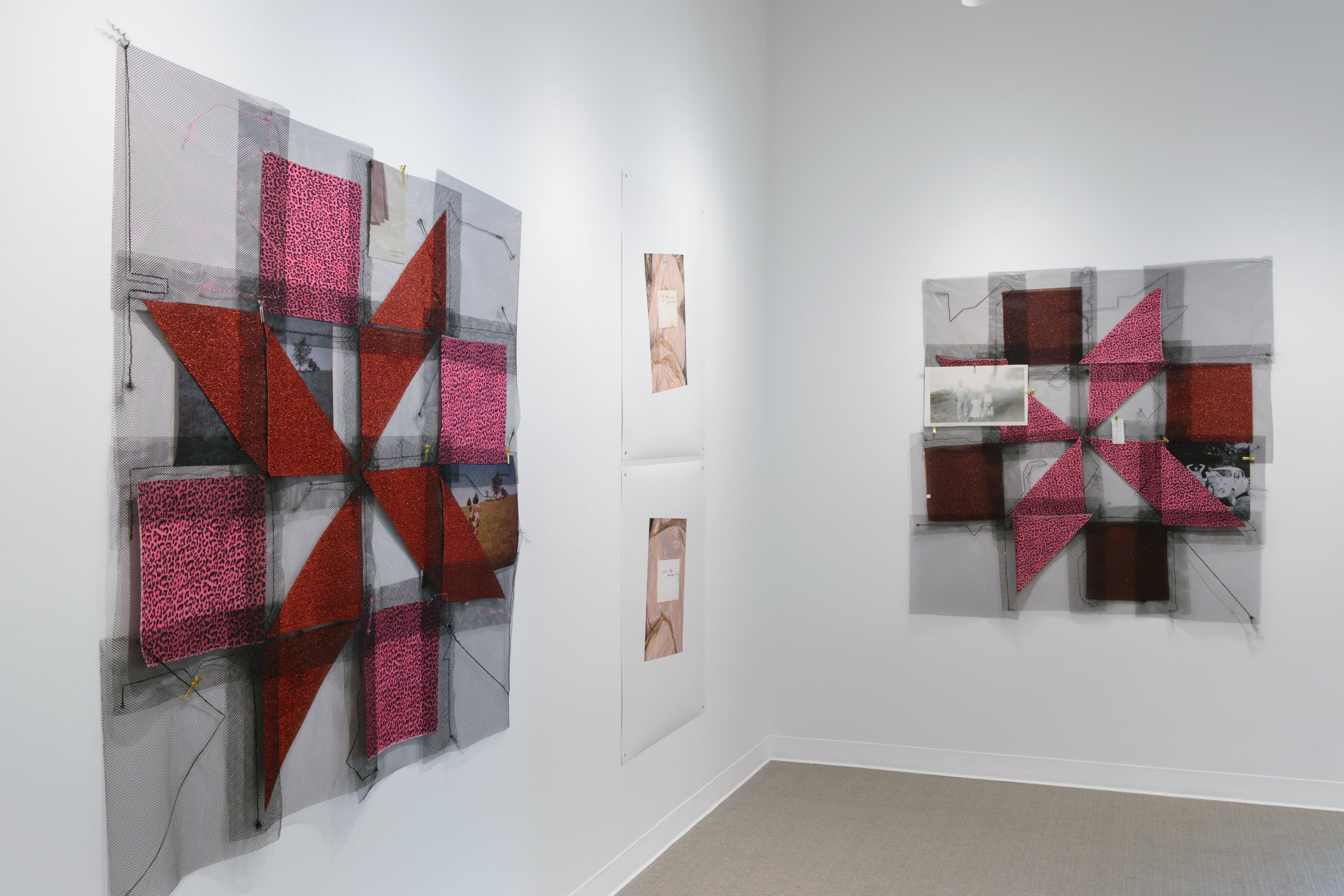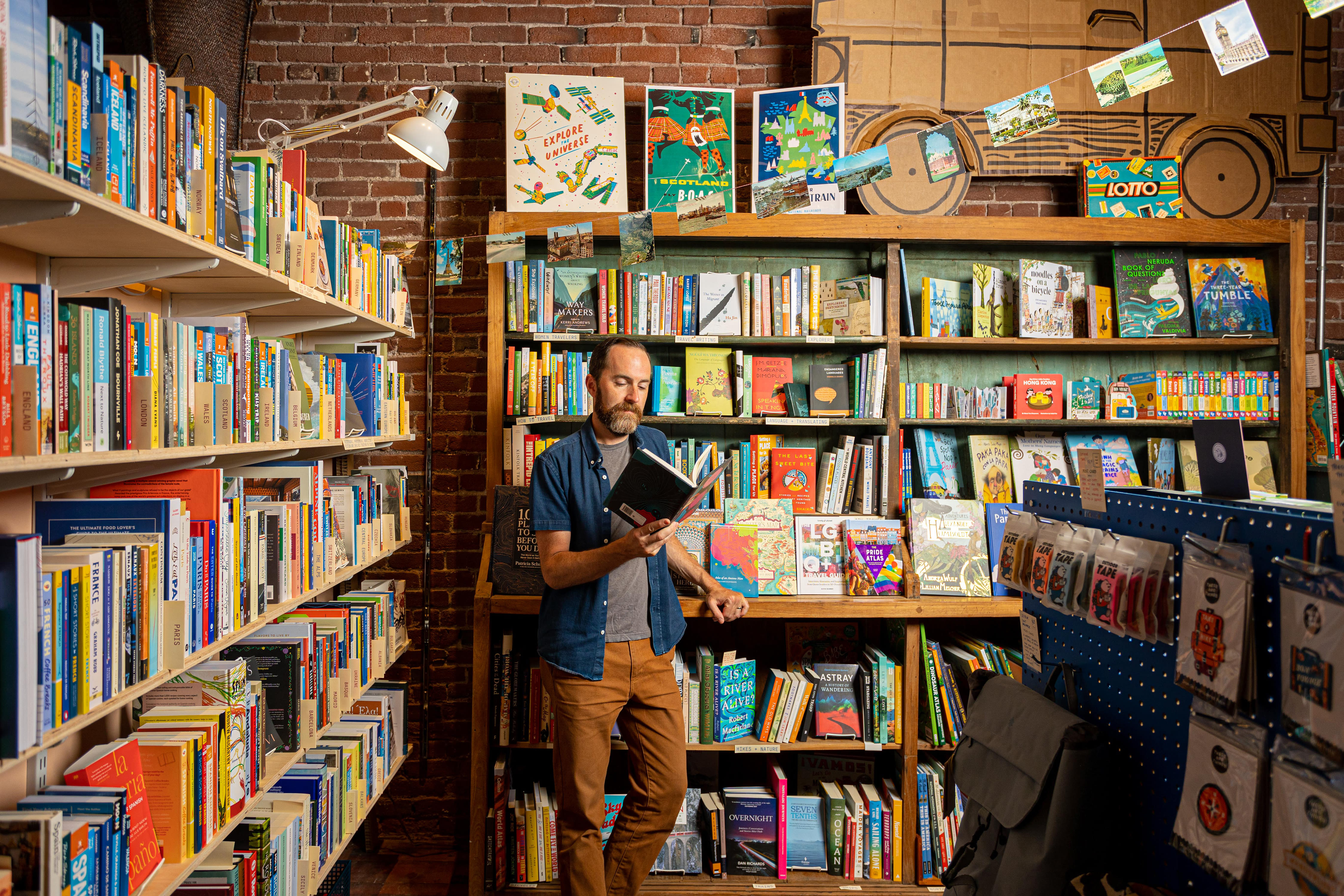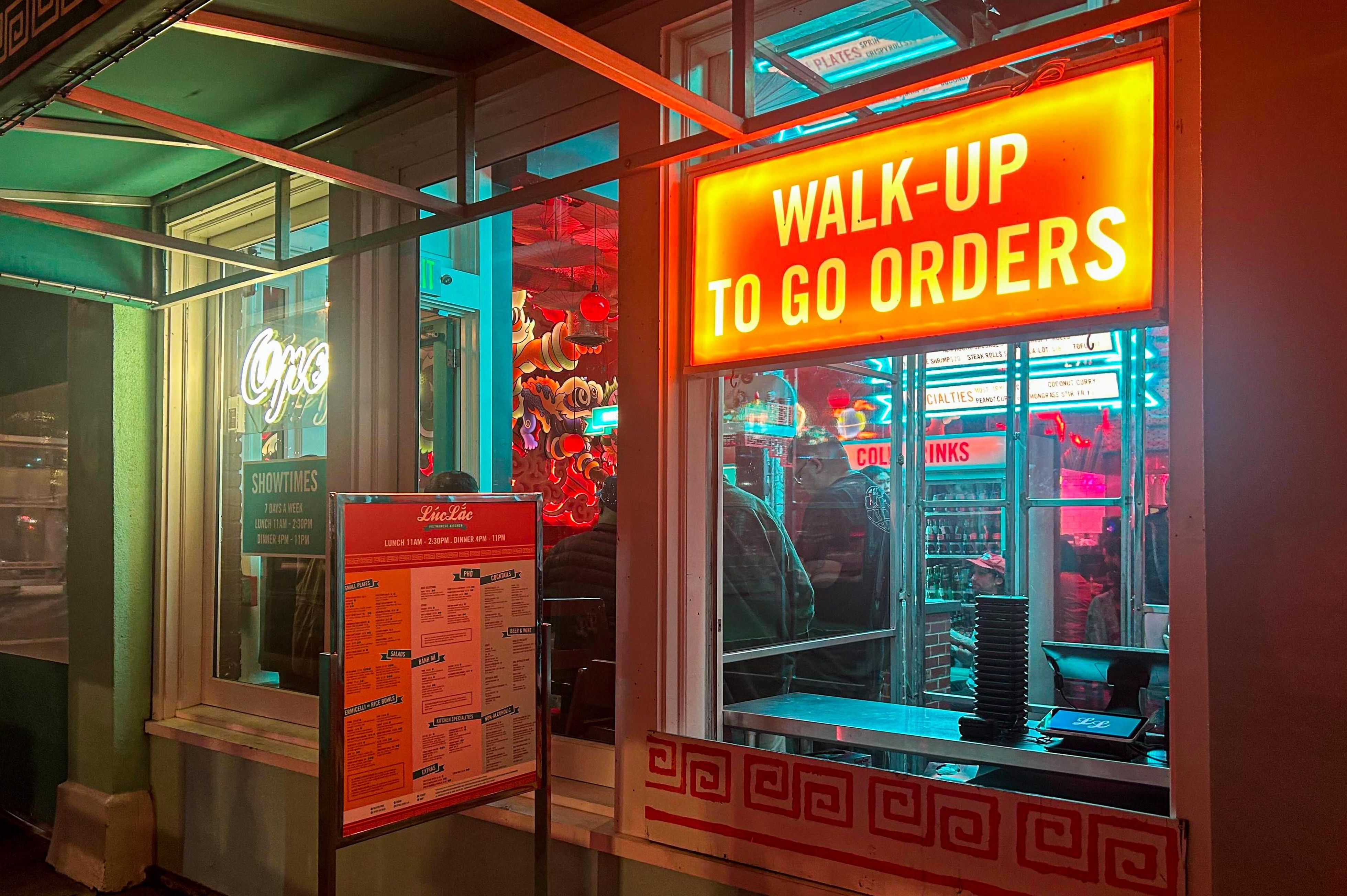Get Funky with Fermentation Folk Hero Sandor Ellix Katz
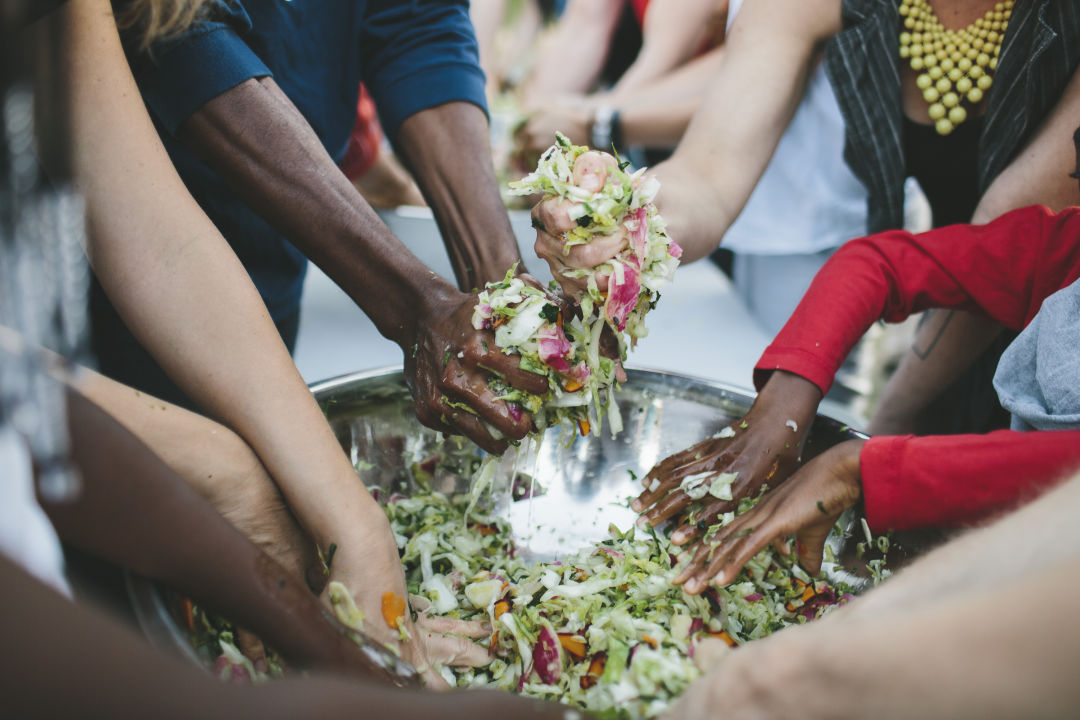
A group of fermentation enthusiasts make sauerkraut.
Image: Jacqueline Schlossman
Affectionately nicknamed “Sandorkraut,” Sandor Ellix Katz is undoubtedly one of the biggest names in the contemporary fermentation scene. The impressively mustachioed Tennessean’s first book, 2003's Wild Fermentation: The Flavor, Nutrition, and Craft of Live-Culture Foods, garnered a cult following and became known as the “fermentation bible.” (Not to be outdone, Katz's The Art of Fermentation won a prestigious James Beard Award in 2013.)
Last year, Katz revitalized Wild Fermentation with an array of color photos and fun new recipes like Strawberry Kvass, Infinite Buckwheat Bread, and African Sorghum Beer. Nab your copy of this special (and hot pink!) second edition at Powell’s on Sunday, February 12, when Katz will chat with Food Lover’s Guide to Portland author Liz Crain. But first, read on for our Q&A with the probiotic pro himself.
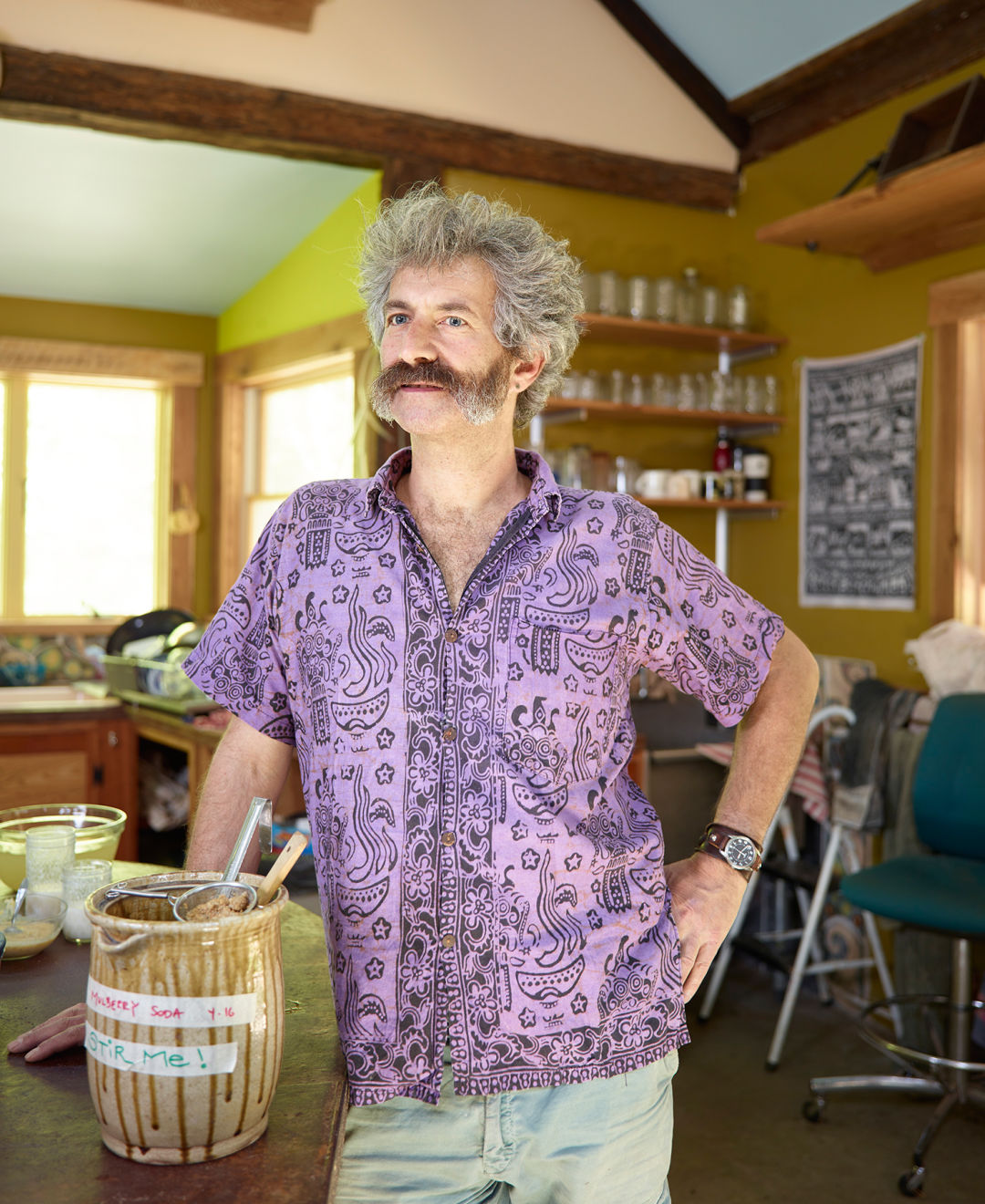
Sandor Ellix Katz
Image: Catherine Opie
How did you become interested in fermentation?
In 1993, I moved from New York City to rural Tennessee, and I got involved in keeping a garden for the first time. I had a row of cabbage, and it was all ready at the same time. I was like, “Oh, I better learn how to make sauerkraut.”
Why did you decide to revise Wild Fermentation?
When I wrote Wild Fermentation, I had taught three sauerkraut-making workshops. [Today,] I have probably taught approximately 1,000 fermentation workshops. I became a much more experienced fermentation educator, and I started emphasizing different things and saying, “Well, do it like I said in the book, but I failed to emphasize this, so do this or that instead.” After years of giving verbal coaching that goes along with the book, I decided it was time to make the book better and say all the things I kept saying to people to augment the book, just in the book.
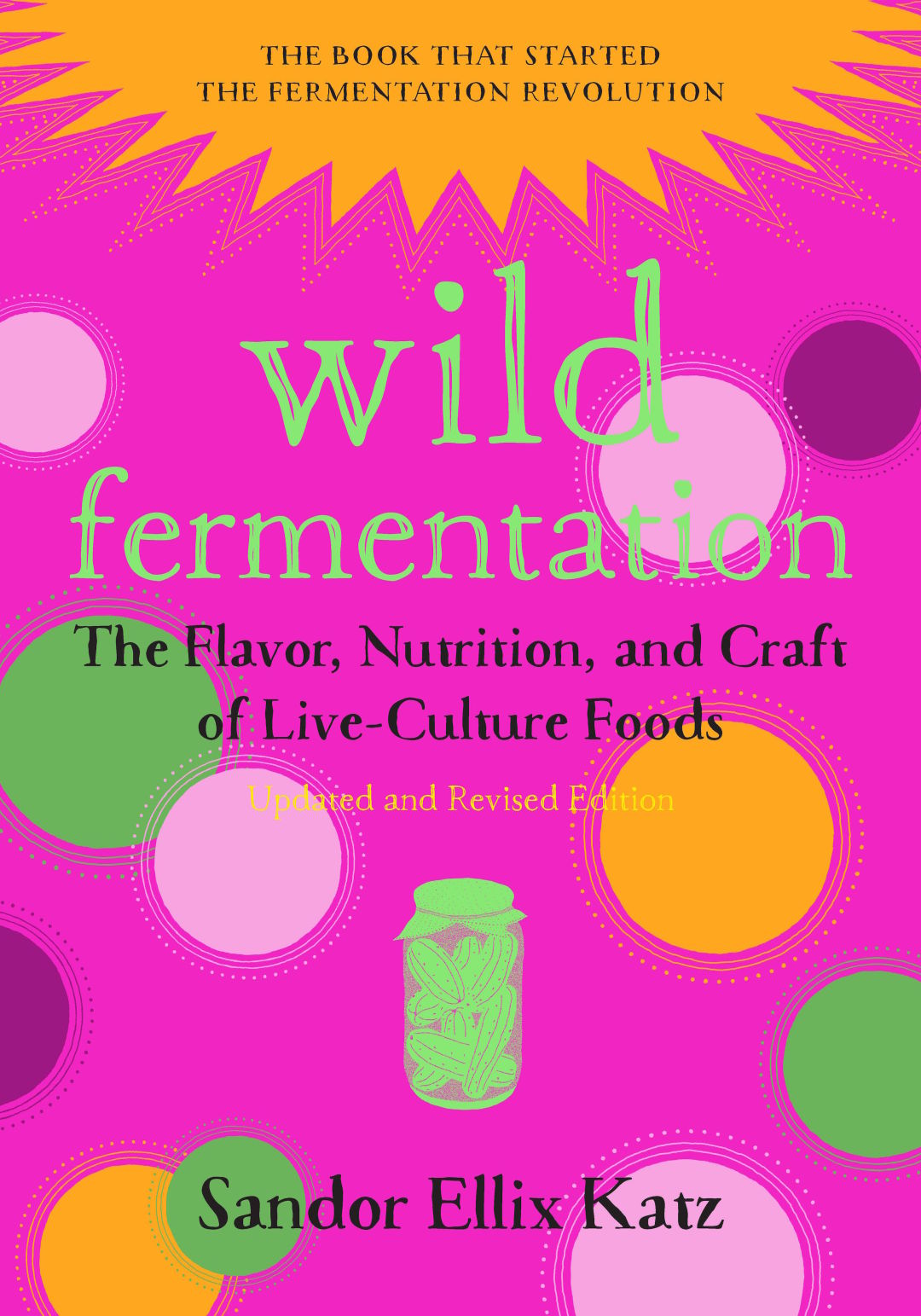
How has the fermentation landscape changed since the publication of Wild Fermentation in 2003?
If you think about beer and wine and bread and cheese and cured meats and chocolate and coffee and sauerkraut and kimchi and soy sauce and vinegar, products of fermentation have endured through history. There was fermentation everywhere, [but] people weren’t talking about it that much. It was just part of the landscape.
Now, clearly, there’s much greater consciousness about fermentation. Broadly, I would say there are two reasons I can think of for that, the first one being that people are asking a lot more question about their food: “Where did my food come from?” “How was my food produced and processed?” Just the fact that people are thinking more about food means that they’re thinking more about fermentation, because fermentation is so integral to food.
The other part is that after literally a century of the idea that you want to avoid bacteria and destroy bacteria, there’s greater awareness that things are more nuanced than that. Many of our physiological processes involve bacteria, and we have a lot of problems that are due to diminished biodiversity in our bodies. There’s a greater interest in bacteria and strategies for restoring biodiversity in the body, so that also leads people to fermented food.
So, the landscape has definitely changed. There’s a lot more awareness of fermentation. But I would argue that fermentation was there are along. It’s just that people weren’t paying attention to it.
How does Portland’s fermentation fervor compare to that of other cities?
There are other parts of the country where I feel like there is an equivalent level of fervor and interest about it. It’s pretty geographically broad. But Portland is definitely one of the epicenters.
Want to catch Katz in Portland? You've got two opportunities:
Food as Medicine 2017 Symposium: Urban Farming, Fermentation and Food as Medicine Everyday
10:30 a.m. Saturday, Feb 11
NUNM Main Campus: 49 SW Porter St
Sandor Ellix Katz in Conversation with Liz Crain
7:30 p.m. Sunday, Feb 12
Powell’s City of Books: 1005 W. Burnside St
